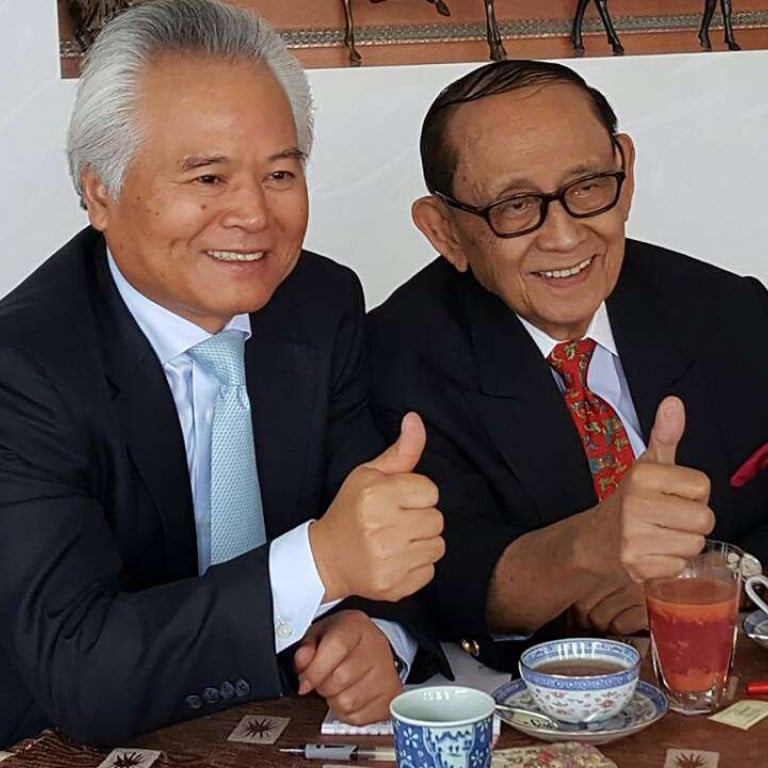
China-Philippines fishing deal ‘may help calm troubled South China Sea waters’
Joint fishing rights in Scarborough Shoal could help ease tensions between Beijing and Manila, think tank chief says after talks with Fidel Ramos
Beijing and Manila could explore ways to open the Scarborough Shoal to fishermen from both countries and jointly develop fish farms in the disputed waters, according to the head of a government-affiliated think tank after talks with former Philippine president Fidel Ramos.
Wu Shicun, president of the National Institute for South China Sea Studies, said Ramos’ five-day fence-mending trip to Hong Kong could help lower tensions raised by the South China Sea disputes.
But Ramos would have to first visit Beijing for talks with Chinese officials to pave the way for Philippine President Rodrigo Duterte to make a formal state visit to China, he said.
In Hong Kong as a Duterte envoy, Ramos discussed six areas for cooperation with Wu and Fu Ying, chairwoman of the National People’s Congress’ foreign affairs committee.
Ties between the two nations have been strained since the Philippines applied for a ruling on the South China Sea from the Permanent Court of Arbitration, which dismissed Beijing’s claims to the disputed waters. Filipino fishermen have also complained of harassment by Chinese government vessels in the Scarborough Shoal.
There are various cooperation plans the two countries can discuss
Wu said Filipino and Chinese fishermen both needed to fish.
“There are various cooperation plans the two countries can discuss. Fish-farming technology is not advanced in the Philippines and China can help with that,” he said.
But the Philippines had to respect China’s territorial rights over the shoal, Wu said.
Ramos stressed that his meetings with Fu and Wu were held “in a private capacity”, but said his country’s government wanted formal talks to avoid further tensions with China and to explore ways of increasing cooperation between the two nations.

Discussions on resolving the territorial disputes would be held, but “as to where this will take place we don’t know yet. We have to go back to Manila to find out the latest developments on the official side”, he said.
A statement signed by Ramos, Fu and Wu said that in addition to marine conservation and fishing rights, the two nations should cooperate on tourism, investment, and cracking down on drugs and corruption.
Efforts on issues such as drugs, smuggling and crime are not as tricky as defence and national security and thus more achievable at this point
Analysts said the consensus reached between Ramos and Fu was crucial to rebuilding confidence between the two countries.
“Efforts on issues such as drugs, smuggling and crime are not as tricky as defence and national security and thus more achievable at this point,” said Dai Fan,,an assistant professor at Jinan University’s Institute of Southeast Asian Studies.
De La Salle University assistant professor Richard Javad Heydarian said Ramos’ trip restored a functional level of communication between the two countries.
The visit made room to discuss less politicised areas for cooperation, paving the way for more high-stakes talks between Beijing and Manila, he said.


